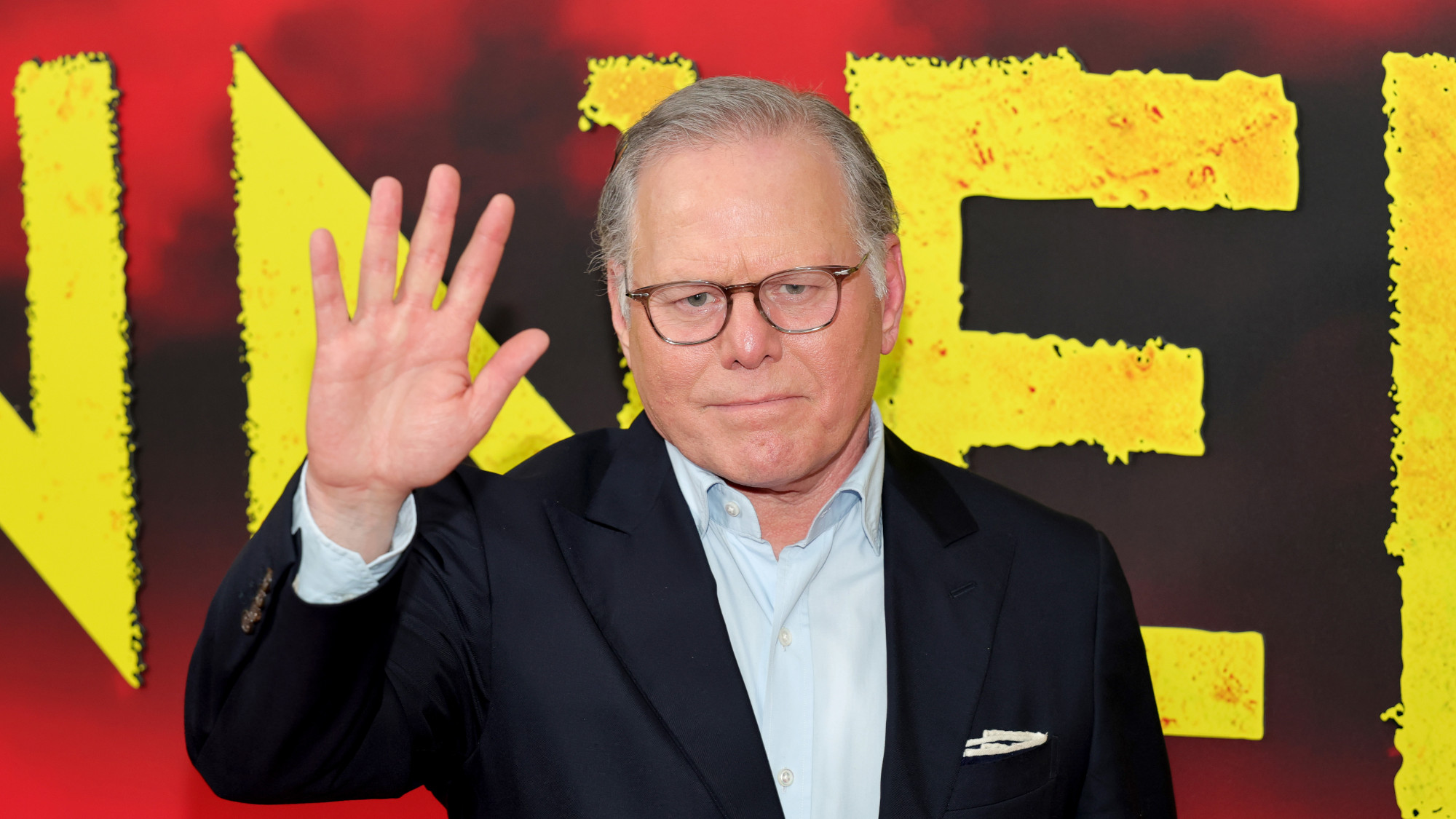Warner Bros. kicks cable to the curb
Warner Bros. Discovery is splitting into two companies as the cable industry continues to decline

A free daily email with the biggest news stories of the day – and the best features from TheWeek.com
You are now subscribed
Your newsletter sign-up was successful
Building a rival to Netflix turns out to be harder than anyone thought, said Hannah Miller in Bloomberg. Three years ago, Discovery CEO David Zaslav engineered a merger with Warner Media to create Warner Bros. Discovery. He argued that the marriage of Warner's "prestige brands like HBO with the more populist programming" at Discovery—home to the Food Network and HGTV—would create a streaming and cable juggernaut. Now, with shares down 60%, Zaslav has decided that "the real key to unlocking their potential is to split them apart." Warner Bros. Discovery will break into two separate publicly traded companies, one focused on streaming and films, the other attempting to keep the cable business alive. In another sign of corporate confusion, Zaslav last month said the streamer was returning to its original name, HBO Max, after the shorter Max branding failed to catch on.
Zaslav's "original thesis was flawed," said Matthew Belloni in Puck. Sure, the streamer grew to 122 million subscribers, still well short of Netflix's 300 million. "But by its own admission those customers didn't find much value in 1,000-lb Sisters and My Feet Are Killing Me," which did little but "squander the best brand in television," HBO. Zaslav loves to share "how he retrieved Jack Warner's desk out of storage," but he's no studio mogul. Ultimately, his belief "that the reality fare of the cable era could help turn a TV company into Netflix" will be his downfall. Zaslav probably shouldn't be trusted with "so much American cultural history," said Nitish Pahwa in Slate. He was the CEO of Discovery for 16 years. "Now, however, he's given up everything from Discovery" and taken the prestigious divisions for himself.
The cable industry is headed for the garage sale, said Peter Kafka in Business Insider. Some cable networks "continue to generate profits" through things like live sports. But every month, more people cut the cord, and now "the people who run the biggest collections of cable TV channels in the country would like someone else to own them." Once powerful cable brands like TNT and Discovery+ are worth less and less, while CNN is "struggling to find a lane in a loud and crowded media environment." The company that the cable networks are being exiled to is essentially full of "melting assets," said Alex Weprin in The Hollywood Reporter. Warner Bros. Discovery, on the other hand, is "divesting itself of its cash-flow-rich" cable machine in the name of creating a growth business. It's a miserable end to the cable era. The taste-makers have given "way to the number crunchers, and now the number crunchers are sending the TV channels to the vultures."
The Week
Escape your echo chamber. Get the facts behind the news, plus analysis from multiple perspectives.

Sign up for The Week's Free Newsletters
From our morning news briefing to a weekly Good News Newsletter, get the best of The Week delivered directly to your inbox.
From our morning news briefing to a weekly Good News Newsletter, get the best of The Week delivered directly to your inbox.
A free daily email with the biggest news stories of the day – and the best features from TheWeek.com
-
 ‘Poor time management isn’t just an inconvenience’
‘Poor time management isn’t just an inconvenience’Instant Opinion Opinion, comment and editorials of the day
-
 Bad Bunny’s Super Bowl: A win for unity
Bad Bunny’s Super Bowl: A win for unityFeature The global superstar's halftime show was a celebration for everyone to enjoy
-
 Book reviews: ‘Bonfire of the Murdochs’ and ‘The Typewriter and the Guillotine’
Book reviews: ‘Bonfire of the Murdochs’ and ‘The Typewriter and the Guillotine’Feature New insights into the Murdoch family’s turmoil and a renowned journalist’s time in pre-World War II Paris
-
 Currencies: Why Trump wants a weak dollar
Currencies: Why Trump wants a weak dollarFeature The dollar has fallen 12% since Trump took office
-
 Elon Musk’s starry mega-merger
Elon Musk’s starry mega-mergerTalking Point SpaceX founder is promising investors a rocket trip to the future – and a sprawling conglomerate to boot
-
 TikTok: New owners, same risks
TikTok: New owners, same risksFeature What are Larry Ellison’s plans for TikTok US?
-
 Will SpaceX, OpenAI and Anthropic make 2026 the year of mega tech listings?
Will SpaceX, OpenAI and Anthropic make 2026 the year of mega tech listings?In Depth SpaceX float may come as soon as this year, and would be the largest IPO in history
-
 Leadership: A conspicuous silence from CEOs
Leadership: A conspicuous silence from CEOsFeature CEOs were more vocal during Trump’s first term
-
 Ryanair/SpaceX: could Musk really buy the airline?
Ryanair/SpaceX: could Musk really buy the airline?Talking Point Irish budget carrier has become embroiled in unlikely feud with the world’s wealthiest man
-
 Powell: The Fed’s last hope?
Powell: The Fed’s last hope?Feature Federal Reserve Chairman Jerome Powell fights back against President Trump's claims
-
 Taxes: It’s California vs. the billionaires
Taxes: It’s California vs. the billionairesFeature Larry Page and Peter Thiel may take their wealth elsewhere